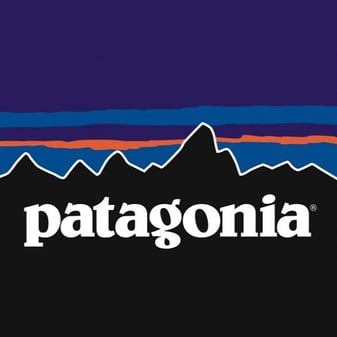 Patagonia's Mission Statement: Build the best product, cause no unnecessary harm, use business to inspire and implement solutions to the environmental crisis. When asked for an inspirational, sustainable company, Lars Moratis, Director of Knowledge Community Corporate Social Responsibility, mentions the American Patagonia. “I believe it is essential that companies such as Patagonia show students how companies can play a part in the transition towards a sustainable society. Patagonia does so in its own unique way and has its own challenges, but a lot of lessons can be learned from the experiences of these pioneers.”
Patagonia's Mission Statement: Build the best product, cause no unnecessary harm, use business to inspire and implement solutions to the environmental crisis. When asked for an inspirational, sustainable company, Lars Moratis, Director of Knowledge Community Corporate Social Responsibility, mentions the American Patagonia. “I believe it is essential that companies such as Patagonia show students how companies can play a part in the transition towards a sustainable society. Patagonia does so in its own unique way and has its own challenges, but a lot of lessons can be learned from the experiences of these pioneers.”
Conscious climb
Sustainability and creativity have been the most prominent raw materials in Patagonia's development. Although the company has been recognized as a global leader in sustainability for years now, it had a modest start. In the late 1950s, its founder Yvon Chouinard, a young rock climber, decided to forge his own reusable pitons out of an old harvester blade in his parents backyard using an anvil he bought from a junkyard. Chouinard Equipment became the leading supplier of climbing hardware in the US. In the early 70s, the company took a leap of faith when it stopped manufacturing the pitons due to the environmental damage they were causing on popular climbing routes, even though they had been the company’s main product. This eco-friendly move was the first of many business risks Patagonia took on its way to what it is today: a corporation with true environmental and social responsibility.
 Moratis: “Patagonia is an example of a radical sustainability choice. A lot of companies think we go too far or too fast.” Patagonia is explicitly against the throw-away society and tries to counter this with projects such as Worn Wear, during which a team travels across Europe in a minivan for four or five weeks to offer free clothing repairs to people on the streets. They also show people how they can make similar small repairs themselves at home. A few years ago, they even published an ad campaign that read “Don’t buy this jacket”. Moratis: “Patagonia raises many questions on how we create economic value. At the same time, the company experiments with alternative profit models, like a secondhand market for its clothing. Patagonia focuses on radical transparency, innovation of the business model and the reevaluation of our consumer society. Other diverse companies have taken similar initiatives, but Patagonia is regarded as one of the pioneers with good reason. If you want to summarize it in terms of our CSR Trends Report, I believe that Patagonia is a fine example of companies that give the value concept new meaning. That concept comes very close to the concept of 'integrated value'.”
Moratis: “Patagonia is an example of a radical sustainability choice. A lot of companies think we go too far or too fast.” Patagonia is explicitly against the throw-away society and tries to counter this with projects such as Worn Wear, during which a team travels across Europe in a minivan for four or five weeks to offer free clothing repairs to people on the streets. They also show people how they can make similar small repairs themselves at home. A few years ago, they even published an ad campaign that read “Don’t buy this jacket”. Moratis: “Patagonia raises many questions on how we create economic value. At the same time, the company experiments with alternative profit models, like a secondhand market for its clothing. Patagonia focuses on radical transparency, innovation of the business model and the reevaluation of our consumer society. Other diverse companies have taken similar initiatives, but Patagonia is regarded as one of the pioneers with good reason. If you want to summarize it in terms of our CSR Trends Report, I believe that Patagonia is a fine example of companies that give the value concept new meaning. That concept comes very close to the concept of 'integrated value'.”
Energy
Recently, Patagonia invested in solar power by installing solar panels on 1500 residential rooftops, following in the footsteps of a number of major corporations such as Google and Apple. Google specifically invested in solar power on an international level, and Apple has just applied for a license to distribute excess energy generated by its future headquarters’ solar panels.
These investments are significant in the promotion of a nationwide switch to sustainable energy. Particularly Patagonia’s further plans to install community solar – mini solar power plants that residents of nearby communities can invest in – draw on grass-roots change that the corporation strongly believes in. According to GTM Research, this approach to solar energy ‘is expected to grow fivefold this year, a result of more states enacting legislation to permit such projects’.
Emancipation
Patagonia is not only an example of successful environmentally conscious entrepreneurship; it is also a leading force when it comes to gender equality at work. Patagonia currently employs 866 women and 862 men, with many women in C-level positions. Last August, the corporation signed the Equal Pay Pledge issued by the White House, which encourages American companies to ensure that their employees receive equal pay for equal work.
According to Dean Carter, Vice President for Human Resources and Shared Services, the large number of women in the company is a result of Patagonia’s family-friendly culture and benefits. Besides offering 12 weeks of fully paid family medical leave for both women and men, it provides on-site childcare – something Patagonia initiated in 1983, when this was available in only 150 companies in the US. Today, 100% of Patagonia’s female employees return after their maternity leave.
Patagonia’s corporate culture strongly supports a more people focused and planet focused approach to business. Moratis: “Most companies choose to renovate within the existing business model. What holds entrepreneurs back is mostly a lack of knowledge, other priorities/lack of urgency, lack of resources and a faulty belief in short-term gains. This also correlates strongly with a company’s motivation to invest in sustainability. There are companies that went for sustainability peremptorily based on the values that drive them, but there are also companies that only invest in sustainability if there is an immediate gain to be had or if the market has a concrete demand for it.”
Mihela Hladin
Mihela Hladin, Patagonia’s Environmental & Social Initiatives Manager for Europe and Founder of Greennovate, will be speaking at the CSR Trend Update on Friday 17 February 2017. Moratis: “Like no other, Mihela gives Patagonia a human face and illustrates how the company is progressing in the field. She is on top of everything and will paint a clear picture of a couple of important CSR trends from the perspective of a leading company. This will offer insight into the future prospects of many other companies. The CSR Trend Update will give many insights into sustainability developments that companies will have to deal with on a national and international level. Participants can also offer added value by discussing the trends among themselves and by challenging each other at the event.”



